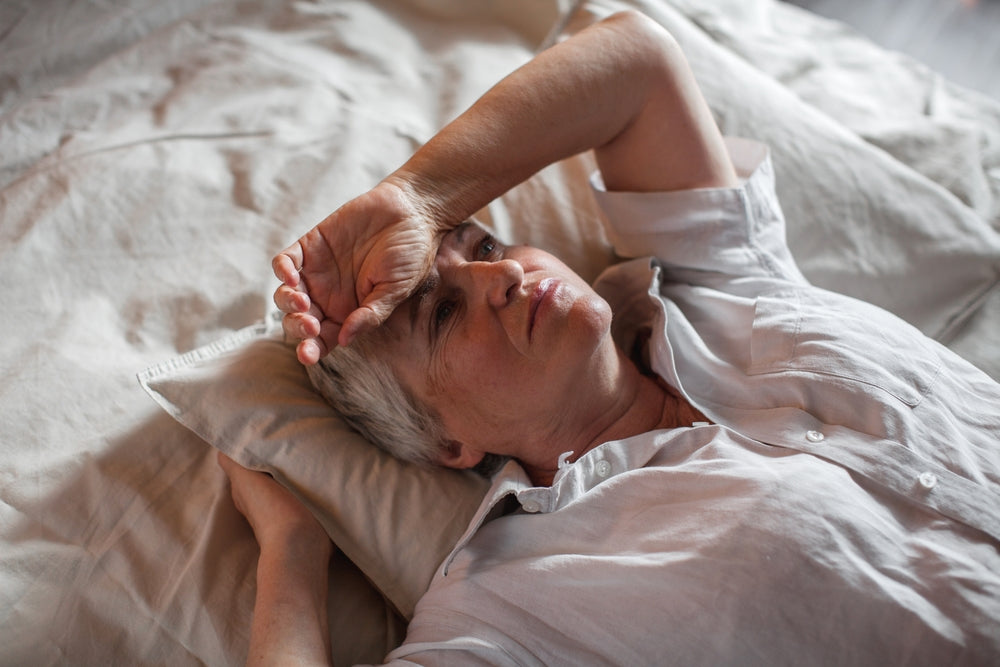Free U.S. Shipping On Orders Over $150

5 Ways Your Sleep Changes As You Get Older
Posted on
I’m not that old, but even I can feel just how much my sleep has changed from when I was in my 20s. I no longer fall asleep the moment my head hits the pillow and sleeping in is a lot harder than before.
Sleep generally becomes more challenging as we grow older, which is unfortunate because good sleep is essential in staying healthy, happy and energetic. Here are the 5 ways sleep changes as you get older plus tips on how to maintain your sleep quality.
Why Aging Affects Sleep
A lot of physical, mental, environmental and social changes happen as we age, and many of these affect how we sleep and how much sleep we get. For example, the level of physical activity goes down, which can cause insomnia and other sleep problems.
There are also health problems like chronic pain that can keep you up at night, not to mention medication that can interfere with sleep. Most seniors also have fewer social interactions, which can make them more lonely and stressed leading to insomnia.
It’s important to note that the amount of sleep you need generally doesn't change as you grow older. Older adults over 65 years still need about 7-8 hours of sleep.
How Aging Changes Sleep
1. Earlier Sleep and Wake Times
One of the classic signs that you are growing older is that you can longer pull late nights. You find yourself going to bed earlier and earlier. You also wake up earlier in the morning.
This shift becomes more apparent once you get over 65 years. Most seniors start feeling sleepy at around 7pm or 8pm, and then they are wide awake at 3am or 4am. The body’s circadian clock changes with age.
It’s important not to resist what your body is telling you. Many older people will try delaying bedtime, only to end up sleep deprived since they still wake up early.
Changing your sleep schedule to sleep earlier will ensure you keep getting 7-9 hours of sleep.
2. Less Slow Wave Sleep
Aging changes sleep architecture. This is how different sleep stages are organized. One of the biggest changes is reduced slow wave sleep, also called deep sleep. This is the stage when the body goes into deep rest. It is linked to memory, learning and recovery.
Older adults get less deep sleep, and this could hamper cognitive functions like learning and memory. It can also interfere with health including immunity.
Several studies have shown that moderate physical exercise, structured social activities and even sleep sounds can help promote more slow wave sleep.
3. Increased Difficulty Falling Asleep
Insomnia is a common complaint for older people. It can be caused by numerous things including stress, loneliness, medication and health conditions.
Lower levels of melatonin can also make it harder to fall asleep. In women, menopause also causes insomnia.
If your insomnia is caused by a health issue or medication, talk to your doctor for advice. If you suspect you have a sleep disorder, you may need to go in for a sleep study.
But in most cases, making some changes to your lifestyle can help you fall asleep quicker. Try to be a bit more active during the day, eat a lighter and earlier dinner, have a consistent sleep routine and avoid caffeine and alcohol close to bedtime.
4. Increased Night Time Awakenings
One of the reasons older adults have less deep sleep is that they wake up more often at night. These frequent interactions keep the body from going into slow wave sleep.
Some people need to pee more often, others simply find themselves awake for no reason and other people become highly sensitive to environmental interruptions like noise and light.
Try to find out what’s causing you to wake up. If it’s going to the bathroom, reduce fluid intake in the evening. If you wake up feeling too cold or too hot, adjust your bedding or bedroom temperature to make it more suitable for sleep.
Blocking out light and sounds from your bedroom can also help you sleep through the night. If black out curtains or thicker window panes are too expensive, a simple eye mask and earplugs can work wonders.
5. More Daytime Naps
With fewer activities to fill their day, seniors tend to nap more often. Increased fatigue, sleep deprivation and the effect of medications can also cause an increase in daytime naps.
The problem is that these naps make it even harder to sleep well. One short nap (less than 30 minutes) in the early afternoon is fine. But multiple naps or napping too close to bedtime causes insomnia.
Quick links
Contact
6063 Hudson Road #160
Woodbury, MN 55125
Yo@hercLeon.com
Leave a comment: